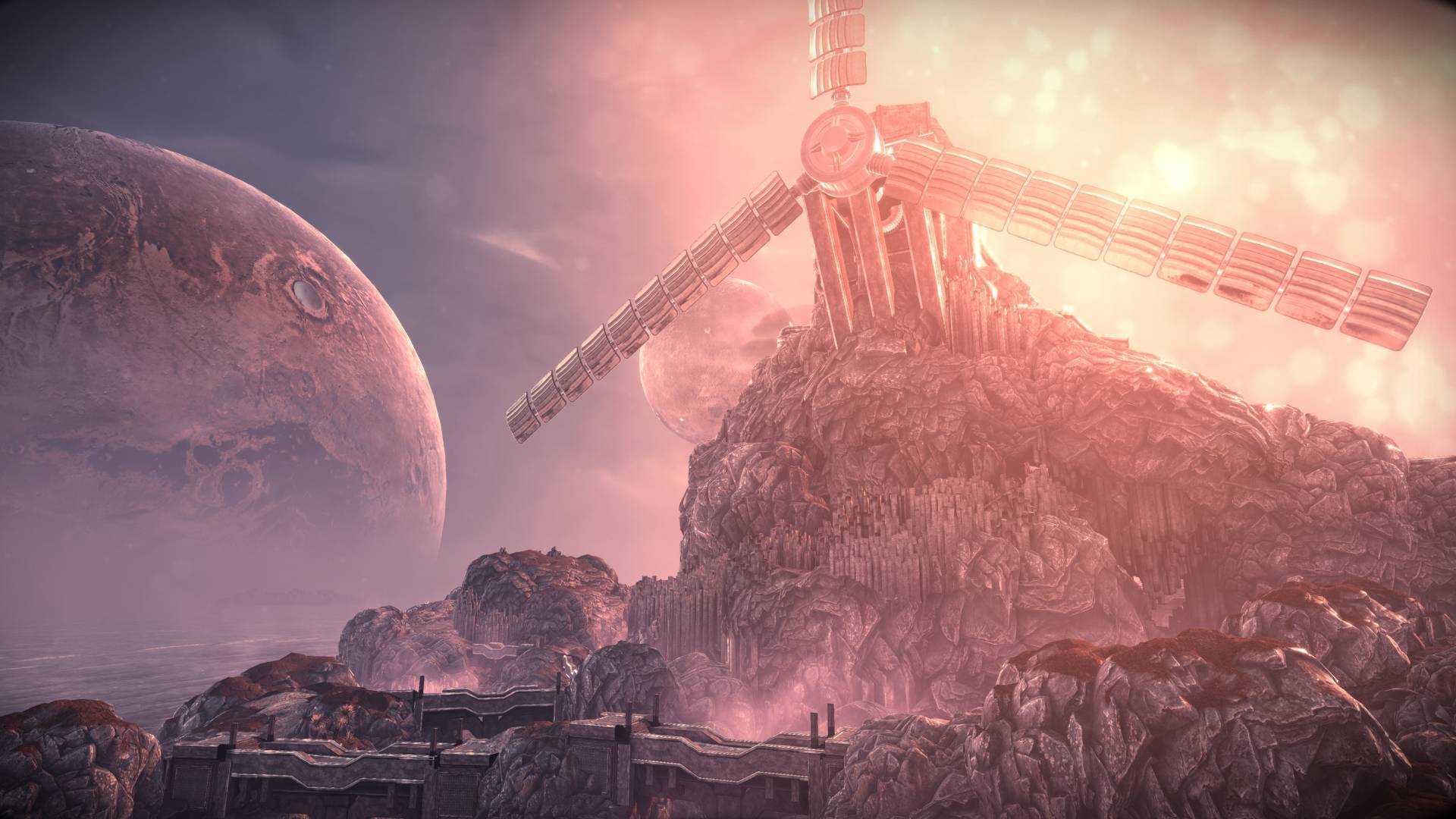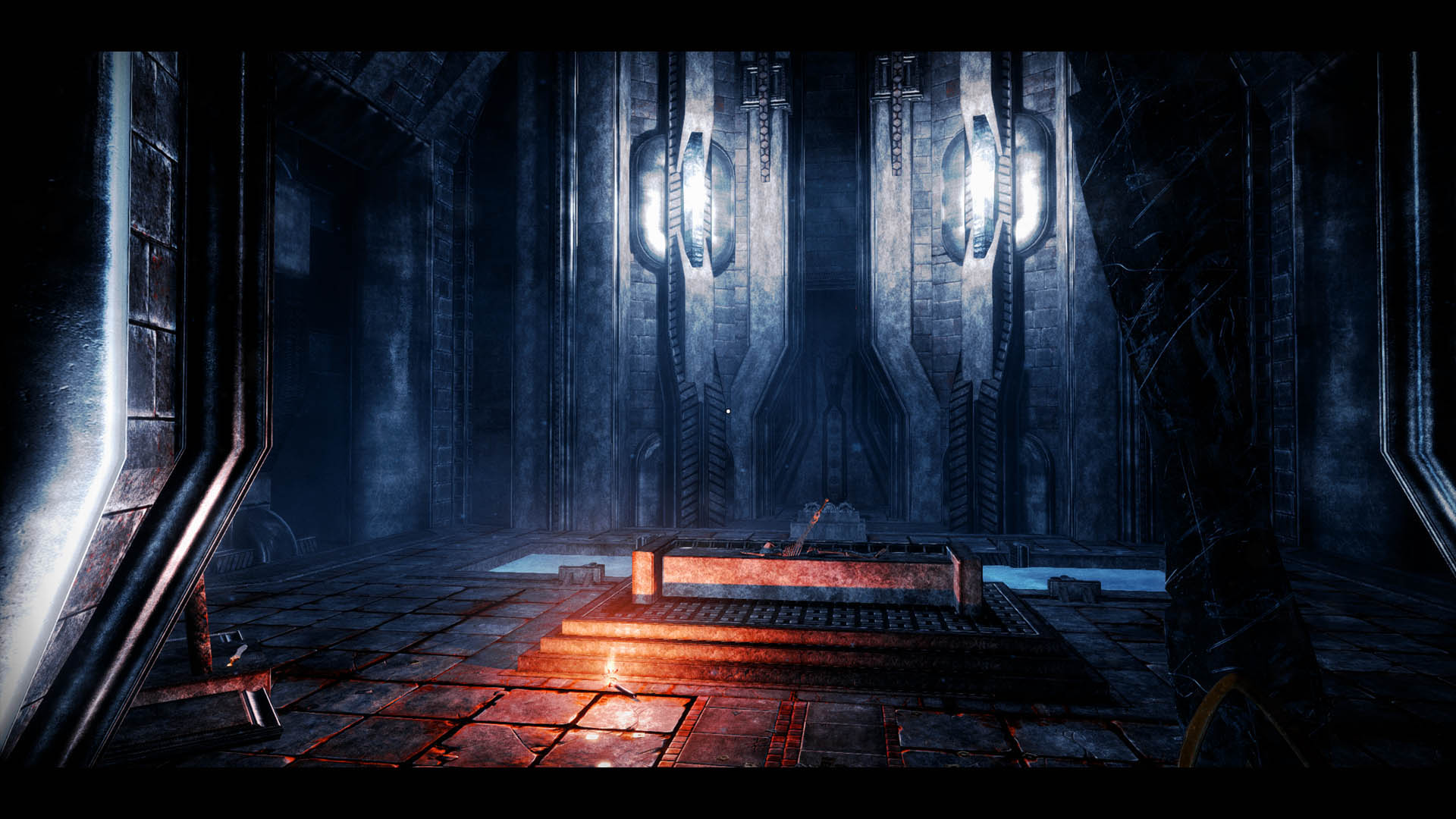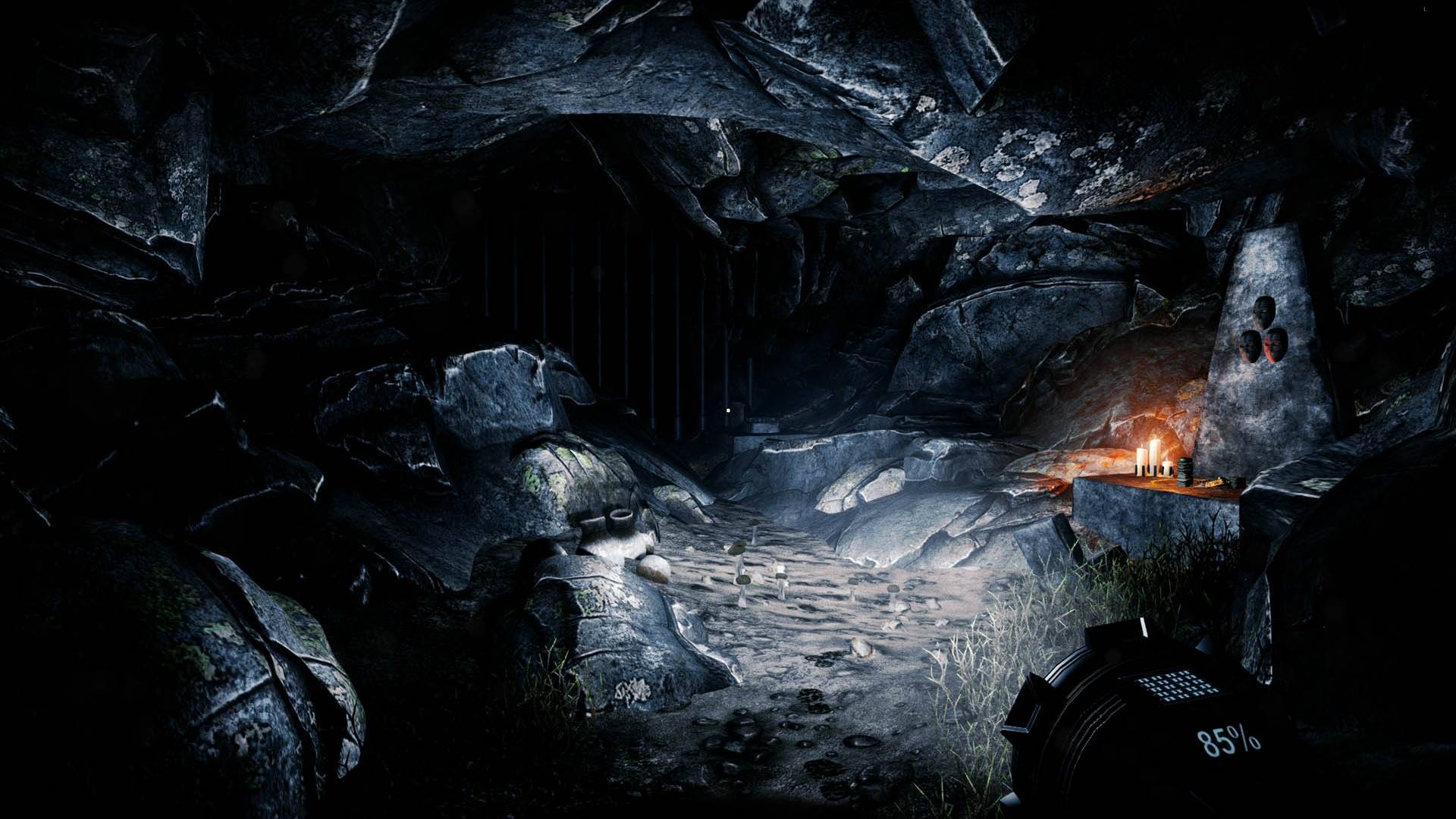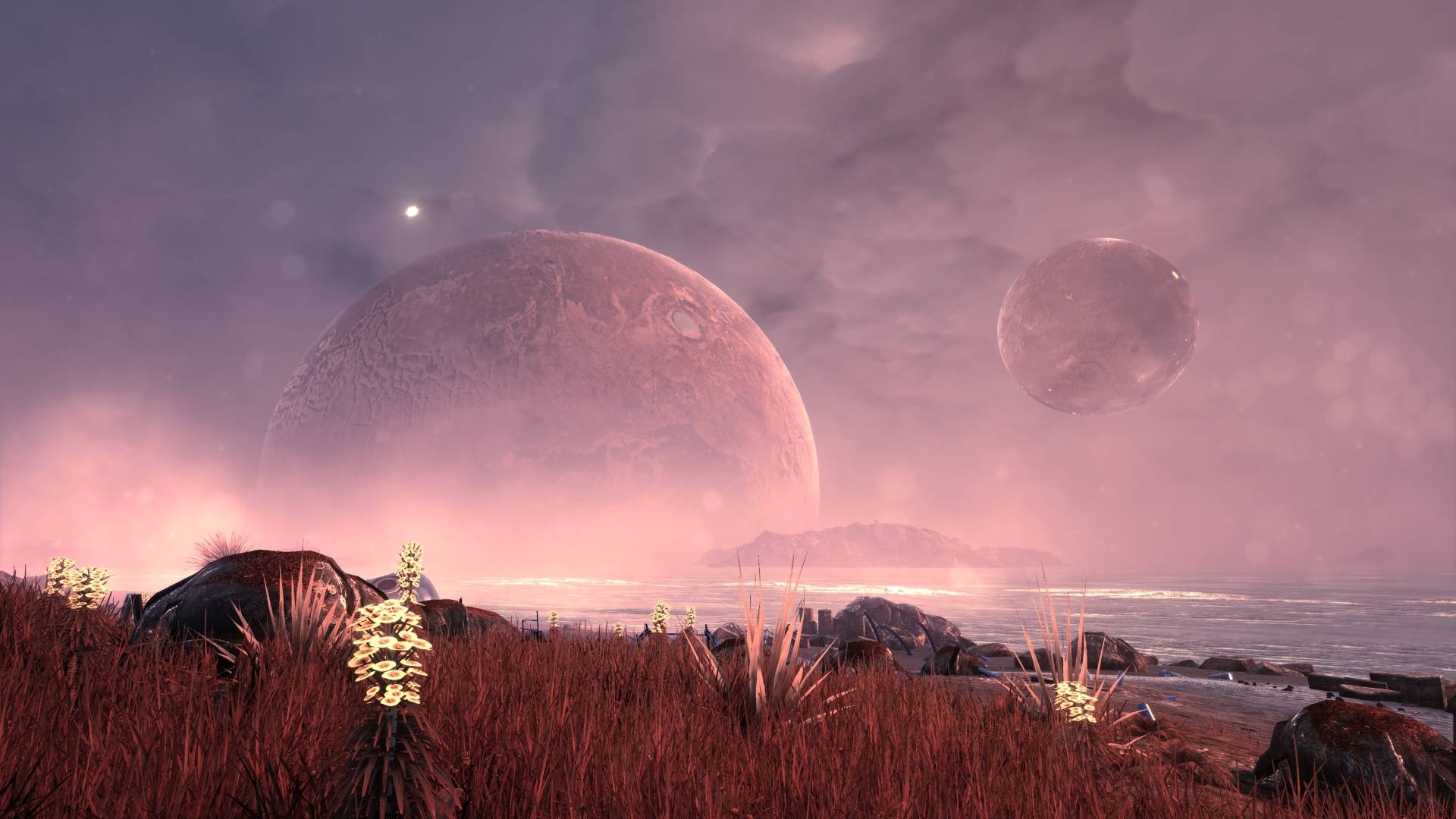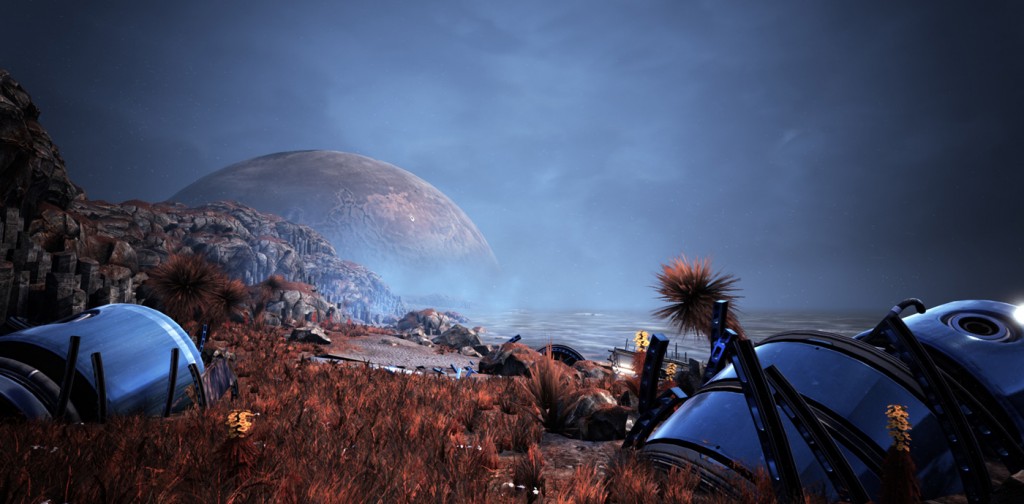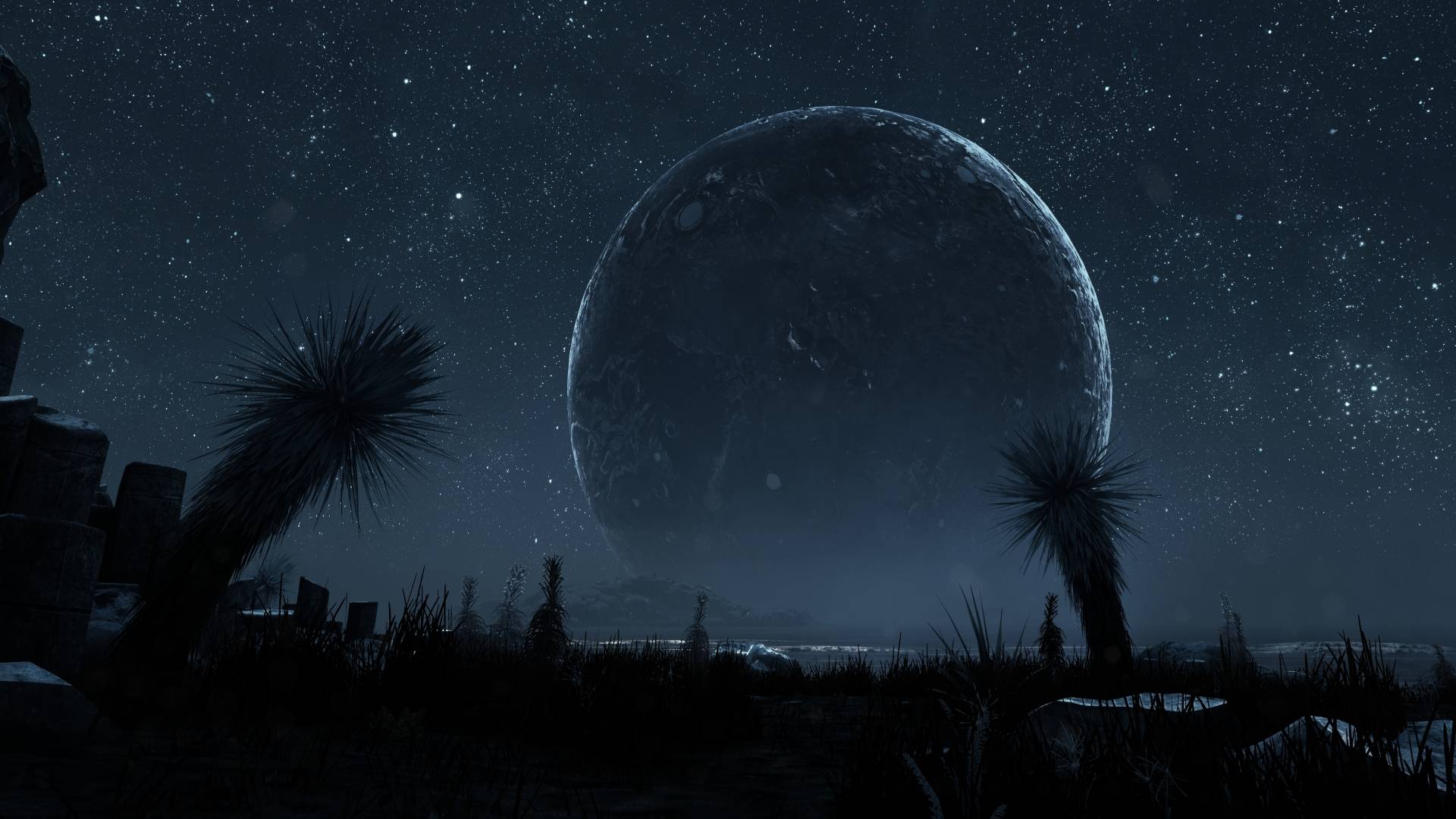
It’s hard to keep track of all the survival games released in recent years. From reputable efforts like DayZ and Rust to shams like The WarZ (or Infestation: Survivor Stories, if you will) and upstarts like ARK: Survival Evolved, the genre isn’t going away any time soon. Then there games like The Solus Project from Teotl Studios, founded by Sjoerd De Jong. His journey into working with Unreal Engine 4 is a story in itself but there’s also the massive undertaking that is The Solus Project which takes place on a planet deep in space.
GamingBolt had an extended conversation with Jong about working with the engine and what new features we can expect in The Solus Project. Jong also talks about the lack of an Early Access version at this time and working with consoles.
"I'm quite independent in general. The whole way how I started was by contributing to the mod community on an independent basis. I made those levels all on my own, and only after I made dozens of stand-alone levels I began joining mod teams."
Kurtis Simpson: To begin with, can you please introduce yourself and how you got yourself into the video games industry? 2. I was reading a bit about the kind of development work you have done in the past. You actually started developing games in Unreal when you were just 15 back in 1999.
Sjoerd De Jong: My name is Sjoerd De Jong I’m part Dutch, part Belgian, living in Sweden nowadays. I started working in games development all the way back in 1999 when I was part of the mod community of Unreal Tournament. I started with the first Unreal Tournament by making levels for that. I made friends in the community and those friends got hired by companies, and then they recommended me and I too got a job. I got my first job in the industry back in 2003, at Epic Games. I made levels for Unreal Tournament 2004, including the demo levels Rankin and Torlan, and after my contract ended I went to Guerrilla Games.
So before the age of twenty I had already worked for Epic and Guerrilla. From thereon I worked for a lot of companies so it’s pretty much difficult to list it all. At one point or another I ended up in Sweden and I decided to found my own company here. I started Teotl Studios in 2010 and our first game was The Ball, which was released in 2010.
The second game was Unmechanical which we released in 2012 for PC, and in the years after that also on iOS, Android, and the consoles in the years after that.
Kurtis Simpson: What was it that attracted you towards Unreal Engine?
Sjoerd De Jong: I think it was the game itself in the very beginning. The very first Unreal was the first proper game I played. I had played games before, I had played Mario and all those classic games but Unreal was the first proper first-person 3D game I played, and it was one of the prettiest games at the time as well. So I had just got a new computer, I bought Unreal and it was such a revolution and an inspiring event for me that it really stuck with me.
At one point I found the editor in the installation and I started messing with it. I had no intention of doing this for a living as I didn’t know it was possible either. I was in Belgium back then and there was no games industry there at all back then, I never considered it to be an option to do this kind of work for a living until I had been doing it for a couple of years.
Kurtis Simpson: So you basically started out with a hobby project.
Sjoerd De Jong: Yes, I began when I was fifteen or sixteen, I forgot when it was and I just did it for fun after school. But I turned out to be quite good at it; people really liked what I made. I made a lot of friends in the community and then I started to realize by the time I was eighteen that maybe I should do this for a living.
Kurtis Simpson: After completing your work on Syndicate for Starbreeze, you went on to form your own studio, Teotl Studios. How different does it feel to lead a games studio compared to working for someone else?
Sjoerd De Jong: I think it suits me really well, I’m really happy doing my own thing. I’m quite independent in general. The whole way how I started was by contributing to the mod community on an independent basis. I made those levels all on my own, and only after I made dozens of stand-alone levels I began joining mod teams. And that kind of self-driven independence has stuck with me, so being able to run my own company and make my own game suits me really well I think. It kind of went very natural I would say. I don’t need someone to tell me what to do, I always initiate things myself. So again all of that fits really well in to running your own company.
"If you look at Steam Greenlight for example, there are tons and tons of survival games on there. But we haven't done Early Access, not saying we will never do that but we're not on Early Access right now for a reason."
Kurtis Simpson: You are currently working on an Unreal Engine 4 project called as The Solus Project. What is the basic premise of the game and how does it differ from other similar offerings out there?
Sjoerd De Jong: I think that the biggest difference is that we’re not aiming to do a multiplayer game, a game with zombies or a game with monsters, and it’s not a sandbox either which is what most of those games are. What we’re doing is a single-player experience basically. It’s a linear single-player game, it has a beginning and it has an end, and we want to ensure that everything that happens between those two points is a very interesting experience. So we’re aiming for a different audience in a way.
You know, if you have a busy life and you are finally home from a long day at your job, after having taken care of your kids, and so on then with the limited amount of time you have, you want to play something with a beginning and an end. And you want to play it on your own so there are no delays or interruptions.
So that’s really what we’re aiming for and that’s why this is different. We’re not a sandbox survival game, and there are not even any flesh and blood enemies in the game either. It’s really about the world, what happened in the world, and figuring out what’s going on, where to go, how to overcome the obstacles. So it’s partially a puzzle game and partially an exploration game.
Kurtis Simpson: Is it something that has never been done before?
Sjoerd De Jong: Well there are a lot of games out there of course that have a beginning and an end, and are single-player only. But it’s really all about the experience and trying to create something that strikes the balance between a relaxing game to take you on a wonderful journey, and a game with enough suspense and events happening to keep your attention hooked. While the game will have hardcore difficulty settings, we also very much so want to ensure people will be able to make progress when they play the game. A lot of survival games tend to require significant amounts of time before you are able to progress or something special happens. That is something that is not going to be the case for us at all.
Also if you look at Steam Greenlight for example, there are tons and tons of survival games on there. But we haven’t done Early Access, not saying we will never do that but we’re not on Early Access right now for a reason. And we have held back from showing much of the game until now for a reason also. We want quality, we want to do this properly. So in terms of distinguishing ourselves from other similar games, quality is certainly something we are aiming for.
Kurtis Simpson: One of the intriguing features of The Solus Project is that not only is the player alone in the game but you needed to fight off against the weather. The game tracks several parameters such as wind, humidity, temperature amongst various things. How are you achieving such complex parameters and make them impact the gameplay?
Sjoerd De Jong: We have a very extensive weather system in the game, it has wind, humidity and temperature. And of course if there’s a lot of wind it will feel colder… You get wet if you are in the water or in the rain. And if you’re very wet and it’s windy, and it’s cold, you’re probably going to feel very cold very fast. So we have a very extensive system there and then we have gotten the actual weather systems itself also. We have over half a dozen weather types including tornadoes, lightning storms, and so on, on top of that as well. Plants also grow faster if it is humid and warm, and will not rot or grow at all when it is freezing. So it all goes quite deep actually.
"Since day one actually the tools in Unreal have always been so good, they've always been so far ahead of everyone else, and it's definitely the case with Unreal Engine 4 now as well."
Kurtis Simpson: Sounds like a game that will take make of use of features that we haven’t seen before.
Sjoerd De Jong: I have taken a lot of inspiration of favourite games and series of mine. Lot of references to series like Lost for example. It’s like Unreal meets Lost meets Indiana Jones. We want a really interesting world to explore. You want to find out what’s happening on this deserted alien planet. There are no enemies and you’re not really seeing anyone or anything, but it’s clear you’re not the first one there. Where did whoever was there go? Why do the structures you find look like megalithic buildings on Earth? The things you’ll discover on the planet are very similar to Earth, so you can start wondering what’s going on here. We want that mystery. Ancient astronaut theories and such.
Kurtis Simpson: What is the current status of the game and when is the launch?
Sjoerd De Jong: We have about 60-70% done right now. The biggest parts left are the 3 last levels that have yet to be built and various other fixes and changes throughout. We are getting there. Our release is currently scheduled for Q1 2016.
Kurtis Simpson: Shifting my talk from The Solus Project to the more technical type of questions, what is the biggest advantage of Unreal Engine 4 compared to other engines out there?
Sjoerd De Jong: Obviously I’m biased because I’ve been working with Unreal since day one, but for me it is all about the tools. Since day one actually the tools in Unreal have always been so good, they’ve always been so far ahead of everyone else, and it’s definitely the case with Unreal Engine 4 now as well. So for example, if you take the material editor, like the visual material editor system that’s been in Unreal since 2005/2006’ish and there’s a lot of engines out there right now that still don’t have this. That says a lot about Unreal and the way that Epic Games approaches development. So with Unreal Engine 4 you have Blueprint, and Blueprint is a visual scripting system and it’s insanely powerful. I don’t think there’s anything out there that even comes close to the power that Blueprint has.
Because it’s so deeply integrated in to the engine and to every part of the engine, we can do so much with it. I think that really makes a big difference to development for us. You can have a very nice graphical renderer that renders really pretty things, but you can’t get really pretty things if you don’t have really good tools available in the first place. So the tools are really the most important thing for me well beyond anything else like graphical features and so on.
"We have gotten up to a point where we have quite a high standard of graphics already in our games industry wide. I think to go beyond where we are now we will hit major budget problems first and foremost. A lot of companies don't have the budget to make extremely high end graphics."
Kurtis Simpson: With UE4 now available for free, what kind of momentum do you see the engine gaining in the next few months?
Sjoerd De Jong: I think it’s going to go really well. I mean that’s what I expect being such a fan of the engine. But the thing is, honestly, as the package is as it is right now, which is free with five percent royalties on finished games. For all the source code, for all the things you’re getting, it’s pretty unbeatable, and I think a lot of people are going to be jumping on this opportunity, yes.
The engine has been out for a year now, and since it takes a while for new games to be made or for studios to wrap up their current productions and consider a change of engine, I think we are very close to see a massive increase in UE4 titles. In fact I have been told there will be over 50 UE4 titles on show this E3 for example.
Kurtis Simpson: What do you see as the next big thing the industry needs to tackle graphics-wise and computationally in games?
Sjoerd De Jong: We have gotten up to a point where we have quite a high standard of graphics already in our games industry wide. I think to go beyond where we are now we will hit major budget problems first and foremost. A lot of companies don’t have the budget to make extremely high end graphics. So you could make even better hardware and an even better engine with even better graphics, but at one point or another it becomes simply too expensive to make ever better art.
The only way we are going to tackle that one is by first coming up with even better development tools than we have now. We need ways of bringing cost down or otherwise we cannot progress graphically. This is why I am also such a strong supporter of the Unreal Engine. It is at the forefront of tools and workflow, and it is those where our bottleneck is as an industry right now.
Kurtis Simpson: Talking about graphics, the next big jump is expected to arrive with DirectX12. But what is your take on DirectX12 and do you think it will be a game changer?
Sjoerd De Jong: I haven’t been following the DX12 news very closely so I don’t know too much about it. That being said, again the tools are absolutely key for us to progress first and foremost as mentioned, plus also we got quite good graphics already in the industry nowadays. We are actually seeing a shift towards gameplay and story nowadays especially in smaller productions, with less emphasis on graphics. So given all that I do not think that DX12 will be a game changer.
Kurtis Simpson: It would seem that most of the DirectX12 games won’t be releasing until next year, when it’s really taking off, when people have adopted it with the Windows10 platform anyway.
Sjoerd De Jong: Yes, but still you would not make a game just for that platform, because half of your consumers are still going to be on Windows 7 or something similar or not have a DX12 compatible card, by that time. It takes several years usually to shift a people to a new platform. I don’t see it happening any time soon. DirectX11 went well because when it came out we also got a new generation of consoles, and at the same time you had native DX11 engines like Unreal Engine 4 coming out. Plus it ran on Vista/Win 7/Win 8 so everyone could use it. But for example with DirectX10, that never happened because it didn’t have all of those kinds of things happenings to support its launch.
"We are actually seeing a shift towards gameplay and story nowadays especially in smaller productions, with less emphasis on graphics. So given all that I do not think that DX12 will be a game changer."
Kurtis Simpson: Do you have any plans to bring the game over to the PS4 and Xbox One in the future?
Sjoerd De Jong: The game is launching on the Xbox One, alongside PC. We are at this year’s E3, at the Xbox booth also.
Kurtis Simpson: With PC gaming moving to Windows10, Microsoft, DirectX12 and such, what are your thoughts on SteamOS?
Sjoerd De Jong: I think it looks nice, but from a business perspective until I see many people using it, it is very unproven still. I think getting some more competition going on the OS market would be great, for everyone’s benefit, but again, I’d like to see it being used on a big scale first to see how it holds up.
Kurtis Simpson: Do you have any plans to Bring The Solus Project to SteamOS?
Sjoerd De Jong: I will definitely consider it but it will depend on our time and budget. We’ll probably check it out if we can but it’s not the greatest priority for us as it looks right now. Again also mostly because of what I said in the previous question.
Kurtis Simpson: So the priority right now is getting it developed for PC and Xbox One and seeing what the future holds afterwards.
Sjoerd De Jong: The priority is definitely actually making the game for PC and Xbox One, before we start thinking about what else could it run on. We are a small team, and the game is the most important thing we need to do. Without that there is nothing to run on other platforms anyway.
Kurtis Simpson: How does PC port of Project Solus compare up with console versions?
Sjoerd De Jong: They are identical. We started out and first and foremost develop on PC, and we aim to make the Xbox One version and the PC fully identical. That said, since we are starting off from PC, if ever for performance reasons something does have to change in the Xbox One version, which is never going to affect the PC version.
"I'm going to do a solid, fun experience, and of course it should run well, but if it runs at 55 or 45 or whatever if it runs at, if it runs smooth enough and well enough not to disturb the experience, I'm going to be happy with that."
Kurtis Simpson: Would you say that’s down to Unreal Engine 4 and the tools it provides you to use?
Sjoerd De Jong: We have the game up and running on Xbox One at a decent framerate and we haven’t even really tried to make it run well. It just does. That really shows just how easy Unreal Engine 4 is if you want to go cross-platform. I’m sure there are probably things we can improve but just the fact that you can get it up and running in no time and you don’t notice any obvious problems in a graphically complex game like this, that’s really nice compared to many other engines that I have worked with in the past.
Kurtis Simpson: What are your thoughts in regards to gamer perception? Do you think it adds any real value in prioritizing frame rate over resolution, or one over the other?
Sjoerd De Jong: Ah! You know, maybe I’m getting old (Laugh) but I’m not really in to those things too much. What I like to have is to be able to turn on the game and enjoy the game. And if the frame rate is 90FPS, or 60FPS, or if it’s 40FPS, I don’t really mind too much, especially if you’re doing single-player games. There will be a difference if you’re doing competitive fast-paced games, right? But I’m doing a single-player game that’s kind of slow-paced in general, so you don’t really notice the difference anyway whether if it’s 50FPS or 70FPS or whatever. I’m not too concerned with that personally.
I’m going to do a solid, fun experience, and of course it should run well, but if it runs at 55 or 45 or whatever if it runs at, if it runs smooth enough and well enough not to disturb the experience, I’m going to be happy with that.
Higher resolutions do tend to matter some for me though. Higher resolutions means you can run it better at larger screens, which aids immersion, and immersion is key for doing atmospheric single player games. I would say that therefore resolution takes priority for us over framerate.
Kurtis Simpson: That’s really interesting to hear from a developer’s take on the subject.
Sjoerd De Jong: Yes, I do have to say the game runs really well right now. I haven’t really done too much optimization yet on PC and we’re already at 60FPS at the moment, at 1920 X 1080 and a GTX780Ti. There should not be any problems with a decent gaming computer. We aim to have it run just fine.








